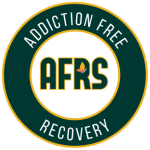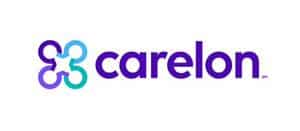Introduction to Long-Term Recovery and Relapse Prevention
Sobriety begins as a choice of no longer indulging but becoming sober. Recovery must be achieved in a facilitative, individual-centered approach rather than a sole battle against addiction to prevent relapse and allow success in sobriety through the years of a person’s life. Long-term recovery addiction plans are more centered on the practice of increasing resilience in the presence of triggers and equipping people with the ability to live healthy and productive lives outside of addiction.
Apart from providing relapse prevention, a risk-prevention strategy is essential for sustained progress. Relapse does not imply a resumption of substance use but rather indicates the failure of recovery that can impact mental, emotional, and physical health. The following guide explores how individualized recovery plans not only tend to offer a decreased chance of relapse but also provide an essential foundation for abstinence.
Why a Long-Term Recovery Plan Is Essential for Sustained Sobriety
Recovery from addiction doesn’t stop when the treatment does. After completing treatment, undefined challenges can incapacitate all the work an individual accomplishes. Here is why a long-term recovery addiction plan is so important:
Transitioning from Treatment to Everyday Life
Life in treatment centers is comparatively controlled, while life outside the treatment centers is chaotic and full of stressors or triggers for relapse. A recovery plan helps people transition out without discomfort by providing a detailed roadmap for daily living and long-term goals.
Reducing Relapse Risk
There is always a danger of relapse for those who do not have proactive strategies for overcoming such encounters unless there are relapse prevention measures that would help them ascertain and avoid dangers.
Addressing the Root Causes of Addiction
Most addictions have their root causes in traumatized lives, mental imbalances, or dysfunctional coping mechanisms. Recovery plans aim to include therapies and interventions as it seeks to heal the roots of addiction.
Empowering Independence
A well-written addiction recovery plan is all about building up one’s sense of autonomy. It educates one to manage time better, reduce stress, and solve conflicts to help him overcome life’s challenges without substances.
Key Elements of a Successful Long-Term Recovery Plan
A comprehensive recovery plan includes all aspects of life disrupted by addiction.
Setting Realistic Goals
Well-defined, attainable goals help provide direction and motivation in recovery.
Short-Term Objectives:
- Attend regular therapy sessions.
- Attend regular support groups.
- Establish a daily routine, among others.
Long-Term Objectives:
- Re-establishing relationships or alternative ways of progressing with education or career.
- Defining measurable, achievable goals from the outset prevents feelings of being overwhelmed and ensures consistent growth.
Building a Support Network
A good support system is essential for continued recovery.
- Family and Friends. An addicted individual will have support from such family and friends, but one needs to create boundaries. One must ensure such people understand the recovery process.
- Peer Support Groups. In Alcoholics Anonymous (AA) or Narcotics Anonymous (NA), a shared experience presents a step of accountability.
- Recovery Sponsorship. The recovery sponsors/mentors are the ones who help one cope with challenges, providing personal advice fitting to each situation.
Developing Coping Mechanisms
Effective coping skills allow for healthy management of emotions and stress.
- Cognitive-Based Skills. Such as cognitive restructuring, can help conquer negative thoughts.
- Physical-Based Skills. Exercise, yoga, etc., improve mood and reduce cravings.
- Creative Skills. Art, music, journaling, or other creative ways of positively directing the unfolding of emotions.
Incorporating Self-Care and Healthy Habits
Recovery may be as much about taking care of the body and brain as it is about staying away from substances.
- Physically. The return of balance in nutrition, exercise, and sleep brings back physical well-being.
- Mental Health. Mindfulness meditations and gratitude journaling seem to add emotional resilience.
- Recreation. Pursuing hobbies or interests brings back joy and a feeling of purpose.
How Long-Term Recovery Plans Address Triggers and Cravings
Triggers and cravings are bound to happen in recovery but don’t have to result in relapse. Every recovery program includes strategies for relapse prevention to help people anticipate and skillfully manage these challenges.
Identifying Personal Triggers
Triggers vary, involving environment or situational factors (certain places, people, events, or objects), emotional factors (such as stress, anger, or sadness), or a combination of the two. Recovery planning revolves around early identification of such triggers.
Developing Actionable Strategies
- Avoidance. Avoidance of triggers where possible.
- Substitution. Substitution of unhealthy habits for healthy pursuits, including exercise and hobbies

- Preparation. Scripts to prepare for anticipating conversations or situations that might be triggering
Managing Cravings Proactively
Cravings are temporary. A recovery plan endows a person with ways to stay sober in those times, including:
- Deep breathing.
- Calling a trusted support person.
- Reading something or solving a puzzle to distract oneself.
Confidence in one’s sobriety is developed through the understanding and preparation for triggers and cravings.
The Role of Professional Support in Long-Term Recovery
Recovery from long-term additions is an extremely complex and multi-dimensional process, often requiring a professional environment for seeking guidance, accountability, and expertise. Being wholly responsible and having personal resolve is highly important, but professional help offers a structured evidence-based intervention that helps someone cut through the intricacies of sobriety. Here’s how professional support becomes the cornerstone of this sustainable journey.
Therapy and Counseling: A Pillar of Recovery
Therapy and counseling are part of every long-term recovery program. They deal with the psychological and emotional components that develop due to addiction. Tools are used to understand and manage these underlying causes effectively.
| Types of Therapy | Description |
Cognitive Behavioral Therapy (CBT) | CBT is the most practiced therapy to treat addiction. It enables individuals to target and modify their negative thinking patterns and habits. For instance, if an individual associates stress with substance use, they can use CBT to reframe his response to stress into more innocuous ones, such as deep breathing or journaling. |
Trauma Therapy | For many individuals, unresolved trauma is a fantastic underlying reason for addiction. Trauma-based therapies like Eye Movement Desensitization and Reprocessing (EMDR) help people work through and heal from experiences as well as reduce the emotional triggers that could bring people back to addiction. |
Family Therapy | Families are affected, and family therapy serves as a tool to rebuild trust, enhance communication, and create a supportive home. It also educates family members about addiction, letting them know their role in the recovery process and how they can render meaningful support. |
Peer Support Groups: Building a Community of Understanding
Peer support groups, such as Alcoholics Anonymous (AA), Narcotics Anonymous (NA), and SMART Recovery, have unique components that professional services are not able to replicate. Such peer groups foster relationships, accountability, and trust among members as they embark on the same recovery journey.
Camaraderie and Connection
Isolation is a huge challenge in recovery. Support groups make people feel needed and help them remember that no one is alone on this journey. Hearing the stories of success and resilience from others can be simply motivating.
Accountability and Motivation
It helps to form regular meetings. Hence, regular schedules encourage routine and accountability. Members share progress, challenges, and victories. They make each other accountable for their interactions.
Sponsor-Mentee Relationships
Programs like AA have a foundation for helping the addict find a sponsor: someone who has been sober for a longer period, and guides and mentors them. The sponsor guides them practically and emotionally through difficult times.
Continuous Monitoring and Check-Ins: Staying on Track
Recovery is always a dynamic process and ongoing professional involvement is important to keep the recovery plans relevant and effective as recovery progresses.
- Therapist Check-Ins
Regular sessions with a therapist allow individuals to reflect on their progress, address emerging challenges, and recalibrate strategies. Check-in time allows for a safe space to explore the feelings, fears, and victories so emotional well-being remains a priority.
- Recovery Coaching
Recovery coaches provide support and guidance in a non-cookie-cutter, goal-specific fashion. They monitor milestones, motivation, and action-oriented guidance on getting through each day’s challenges.
- Health Monitoring
For a patient in recovery from addiction, health monitoring is no less significant. Healthcare professionals can monitor the reversal of damage brought about by addiction, thus ensuring his overall well-being.
- Relapse Prevention Plans
This means that continuous monitoring will provide ample time for early detection, consequently leading to timely intervention. Therapists and coaches may also adjust the recovery plan and strengthen strategies against triggers and cravings.
The Holistic Impact of Professional Support
Professional support in recovery does not only handle addiction but also promotes holistic healing. The therapy, counseling, peer group meetings, and constant observation offer those skills and confidence to lead normal lives soberly.
Investing in professional assistance ensures that recovery isn’t just a temporary achievement but a sustainable, lifelong transformation. The expertise, structure, and encouragement provided by professionals form the foundation of a recovery journey that fosters resilience, self-awareness, and lasting success.
Tips for Staying Committed to Long-Term Recovery
- Stay Educated. Understanding addiction and recovery enhances awareness and preparedness for challenges.
- Track Progress. Celebrate milestones to stay motivated and acknowledge growth.
- Focus on Self-Compassion. Recovery is a journey; setbacks are a part of it but do not stop the process.
- Frequent Involvement. Participate regularly in groups or therapy.
- Gratitude Focus. Engage in daily practices of gratitude to shift the emphasis of life to experience, which promotes motivation for soberness.
The Lifelong Journey of Recovery and Relapse Prevention
A good addiction recovery plan makes more than just users abstain from substance use. It helps them to change their lives because, in the long run, it tackles the real causes of addiction and equips a person with effective ways of coping and living a rich life.
Sustaining sobriety diligence, proper guidance, and more importantly, good support. With a proper strategy well implemented, a person can overcome the hurdles of recovery and thus continue into a life of health and contentment.

Call to Action
We are here to guide you if you or someone you love is ready to start or step up a recovery journey. You can call today to find an individual long-term recovery addiction plan. We will work together to find the strategy you need for lasting success and a brighter, sober future. Reach out now for the first step on your way to transformation!
FAQs About Long-Term Recovery Plans
- What is the difference between short-term and long-term recovery plans?
Short-term recovery plans address immediate needs like detox and early treatment, while long-term plans focus on sustained sobriety and life reintegration.
- Can recovery plans be tailored to individual needs?
Yes, recovery plans are highly customizable, addressing unique triggers, goals, and personal circumstances.
- How do recovery plans address co-occurring disorders?
Integrated treatment plans include mental health support for conditions like anxiety or depression, ensuring comprehensive care.
- What happens if someone relapses during a long-term recovery plan?
Relapse is viewed as a part of the recovery process. Plans are adjusted to identify the causes and implement new strategies for success.
- How do support groups enhance recovery?
Support groups provide shared experiences, practical advice, and accountability, creating a sense of community that strengthens recovery efforts.


























